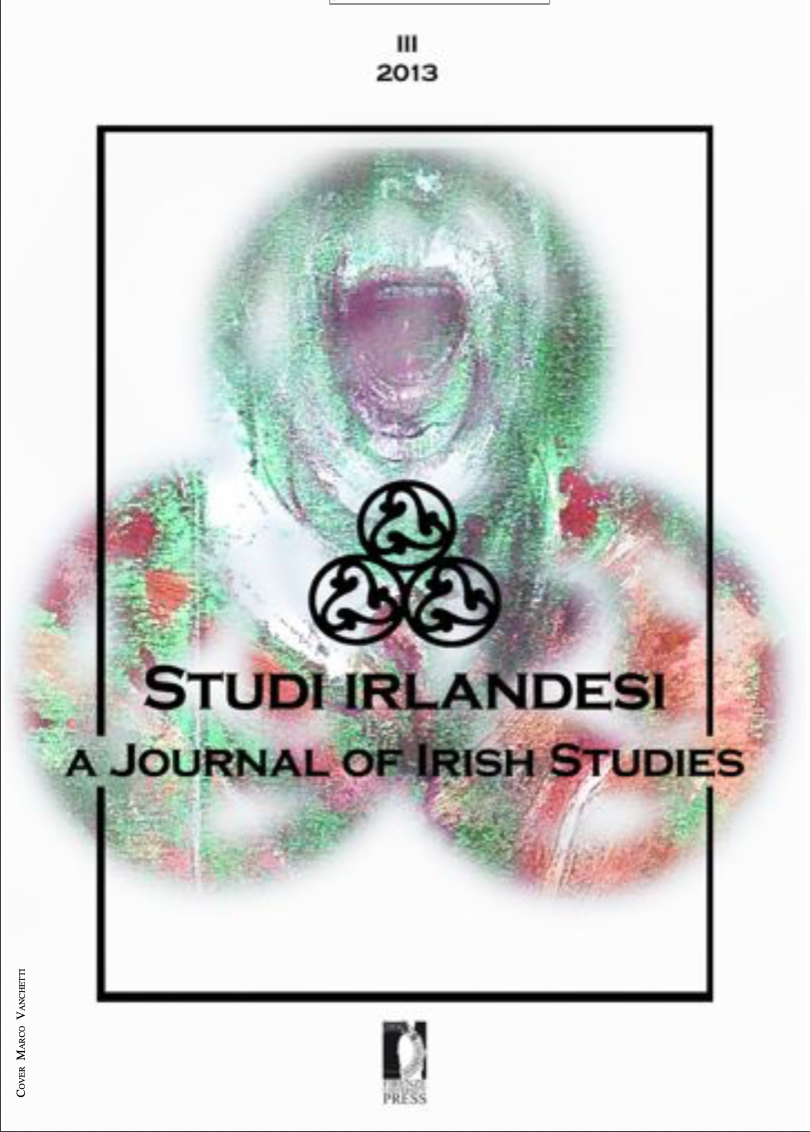Published 2013-12-30
How to Cite
Abstract
In Ireland, the "home" has a long tradition as a powerful spatial
signifier, capable of expressing a range of social, aesthetic, and political interactions. Historically, home ownership in Ireland was not only a measure of working-and-middle-class respectability, but also a symbol of national independence that stood in opposition to a colonial history of dispossession. Throughout the Celtic Tiger, however, the ideas of what constituted the "home" were transformed by a speculative form of capitalism that recreated domestic space as a fluctuating (and valuable) commodity. By centralizing the connection of urban space to capitalism, speculation opens the domestic spaces of the home to the processes of speculation and devaluation.Essentially, my argument analyzes how changing the economic parameters of domestic space creates a concomitant change in how homes are figured in the Irish cultural lexicon. This change represents a cognitive speculation where the speculative value of a home, as a commodity is what confers an authentic social status on the homeowner. Any ethical concerns related to domestic space, both its use and value, are superseded by its ability to generate capital via a speculative evaluation. Through the connection of spatial and cultural transformation, my paper furthers current discussions in Irish studies that analyze the dramatic impact, and aftermath, of the Tiger. The literary response to speculation, found in analyses of Deidre Madden and Anne Haverty, frame speculation as a parody of communal life that eliminates any real interpersonal relationships in a wave of postmodern alienation. Finally, my paper articulates how the lasting damage that followed the collapse of the Tiger altered the way the Irish understood the concepts and realities of the "home".


